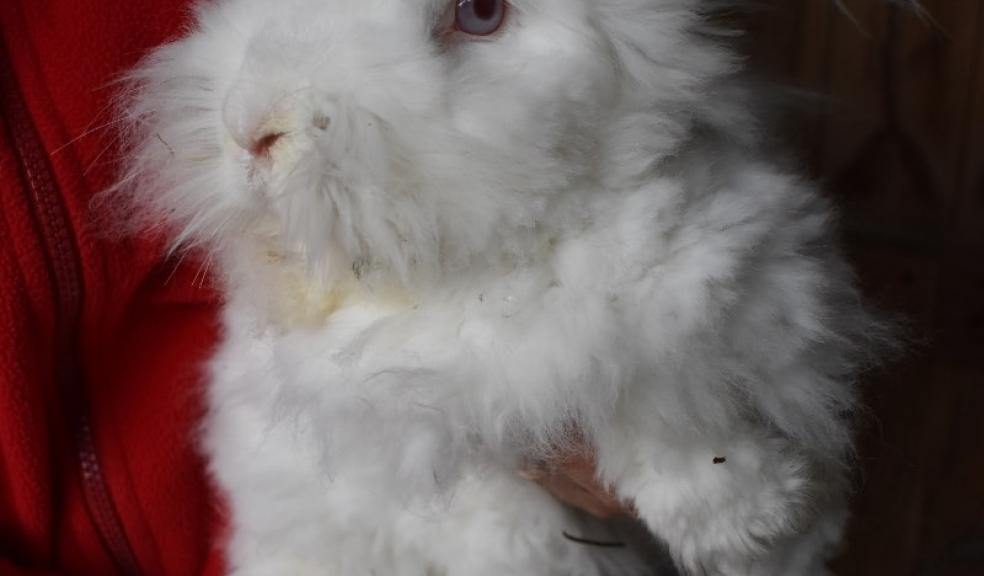
Plymouth animal charity's appeal to help Britain's most unwanted
They might be cute and fluffy but rabbits have been branded “Britain’s most forgotten pet” by a Plymouth charity struggling to cope with the number of unwanted bunnies.
Woodside Animal Welfare Trust, at Elfordleigh near Plympton, has 40 rabbits in its care plus dozens more on a waiting list.
And the desperate situation is expected to get worse as the colder weather moves in and the appeal of going outside to care for a rabbit fades faster than the daylight.
Woodside manager Helen LeCointe said: “It is heartbreaking when we have to turn people away. We feel sorry for the people but sorrier for the animals.
“Rabbits are Britain’s most forgotten pet. They are very quiet and all too often they are left in a hutch at the bottom of the garden and forgotten about.
“In the lovely weather people don’t mind going out and looking after their rabbit but when it’s cold or wet they reconsider whether they want it still.”
This weather, coupled with families buying pets as Christmas gifts, will put enormous pressure on Woodside this winter.
According to Helen, rabbits are the new victim of people buying pets as presents.
Woodside area supervisor Nichola Porthouse explained that rabbits are high maintenance and, unless looked after properly, can be difficult pets.
She said there were many misconceptions surrounding their diet, habitat, breeding and health needs as well as a rabbit’s lifespan, which is typically 10 to 12 years.
Rabbits should have annual vaccinations, be spayed or neutered, wormed and, depending on their coat, groomed, Nichola said.
However, 90 per cent of the rabbits rescued by Woodside have not been vaccinated against Rabbit Viral Haemorrhagic Disease (RVHD), both strains of which can be lethal to rabbits.
“There is a lack of basic rabbit welfare,” Nichola said “The number of rabbits that come into us and have not seen hay before is worrying, 90 per cent of a rabbit’s diet should be hay.
“Without the correct diet, the rabbit can develop spurs - where the teeth grow extra bits and cut into their tongue and cheeks.”
Among the neglected rabbits taken in by Woodside is Jeffy, a long-haired white rabbit who arrived matted and a smoky grey colour due to a severe flea infestation.
“We were still finding live fleas on Jeffy after three treatments,” Nichola said. “He came in with a virus that unfortunately means he cannot be rehomed.
“He’s a gorgeous rabbit but he’s high maintenance. He’s had to be clipped three or four times over the summer because his hair grows so quickly.”
Nichola said rabbits should, as a minimum, have a 6ft hutch with an 8ft by 8ft run attached.
“That’s just three hops for a rabbits, she said. “You wouldn’t get a cat and keep it in a cat basket, keeping a rabbit in a small hutch is no different.”
And she stressed that while they might look cuddly, some rabbits are anything but.
“They are prey animals,” Nichola explained, “so when you go to pick them up the rabbit thinks it’s going to be attacked and kicks.
“A lot of this behaviour will depend on handling from a young age. Rabbits can be rehabilitated and spaying/neutering can help to calm temperament problems.”
Helen added: “Rabbits can make rewarding pets but you have to put the time, energy and knowledge into them. Do not get a rabbit unless you are committed for 12 years.
“If people do want a rabbit we would encourage them to adopt rather than buy online or from a pet shop. We will always take a rabbit that has been rehomed by us back.”
The cost of adopting a rabbit from Woodside is £30, for which the rabbit is vaccinated, microchipped, wormed and spayed or neutered.
It costs just £24 a year to sponsor a rabbit pen at Woodside, visit www.woodsidesanctuary.org.uk. For more details on rehoming a rabbit contact the charity on 01752 347503.













